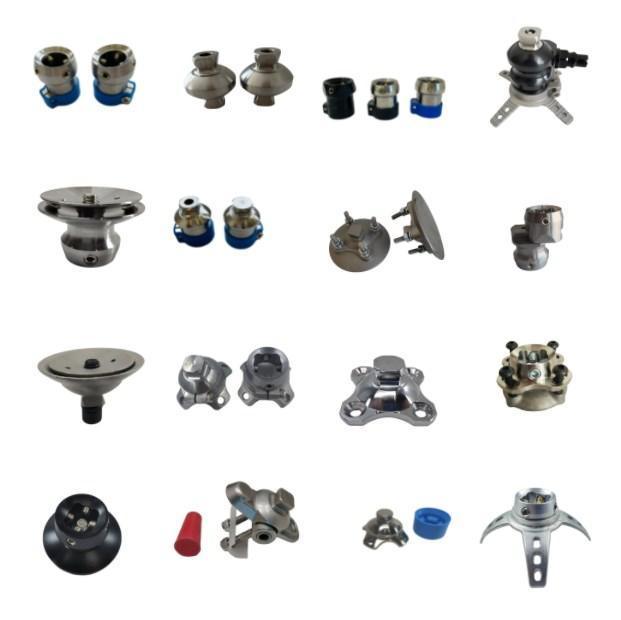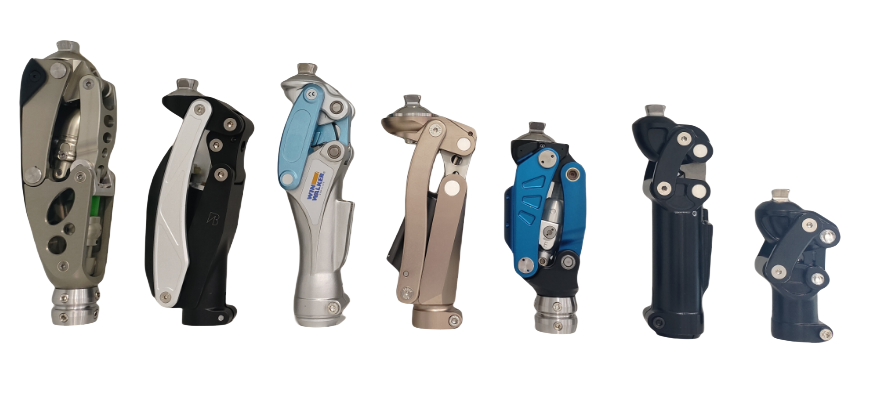Prosthetic Orthosis: Enhancing Mobility and Quality of Life
Release Time:
Mar 27,2024
Prohetic orthosis, also known as orthotic devices, plays a crucial role in enhancing mobility and improving the quality of life for individuals with physical disabilities or injuries.
Prohetic orthosis, also known as orthotic devices, plays a crucial role in enhancing mobility and improving the quality of life for individuals with physical disabilities or injuries. These specialized devices are designed to support, protect, and assist the function of the limbs, spine, or other parts of the body that have been affected by a medical condition or injury.
One of the key benefits of prosthetic orthosis is its ability to provide stability and alignment to the body, helping individuals maintain proper posture and movement patterns. By supporting weak or injured body parts, orthotic devices reduce the risk of falls, prevent further damage, and promote safe and effective mobility.
Prosthetic orthosis also helps individuals regain or enhance their independence by enabling them to perform daily activities with greater ease and confidence. Whether it’s walking, standing, or engaging in physical tasks, orthotic devices can significantly improve functional abilities and overall well-being.
Furthermore, prosthetic orthosis can contribute to the rehabilitation process by facilitating proper alignment, muscle activation, and joint support during therapy sessions. This not only accelerates recovery and strengthens weakened muscles but also promotes a faster return to normal activities and a higher quality of life.
In conclusion, prosthetic orthosis plays a vital role in supporting individuals with physical limitations, empowering them to lead more active and fulfilling lives. By providing stability, protection, and assistance where needed, orthotic devices enable individuals to overcome challenges, improve mobility, and enhance their overall well-being.
Keywords:
You Can Also Learn More About Industry Trends
Dec 14,2025
The Future of Medical Prosthetic Implants: Innovations and Insights
Medical prosthetic implants have revolutionized the field of healthcare, providing solutions that enhance the quality of life for individuals with disabilities or injuries. These implants can replace or support damaged body parts, allowing patients to regain functionality and mobility. As technology advances, the development of medical prosthetic implants is becoming increasingly sophisticated, in
Dec 07,2025
The Comprehensive Impact of Medical Prosthetic Implants in Modern Healthcare
The Comprehensive Impact of Medical Prosthetic Implants in Modern Healthcare Table of Contents 1. Introduction to Medical Prosthetic Implants 2. Types of Medical Prosthetic Implants 3. Benefits of Medical Prosthetic Implants 4. Technological Advancements in Prosthetic Implants 5. Challenges in the Adoption of Prosthetic Technology 6. Impact on Patient Quality of Life 7
Nov 30,2025
Understanding Medical Prosthetic Implants: Innovations and Benefits
Medical prosthetic implants have become a cornerstone of modern medicine, offering solutions for individuals who have lost limbs, suffered from joint problems, or require surgical replacements due to various medical conditions. The field has seen remarkable advancements over the years, leading to improved quality of life for countless patients. At the heart of medical prosthetic implants is the go

Building 58, Tianshan Community, Yuanshi County, Shijiazhuang City, Hebei Province
Phone/Whatsapp:
E-mail:
Main Business
Specializing In The Import And Export Trade Of Prosthetics And Orthotics Products
Find The Products You Need Quickly
Quick Navigation






